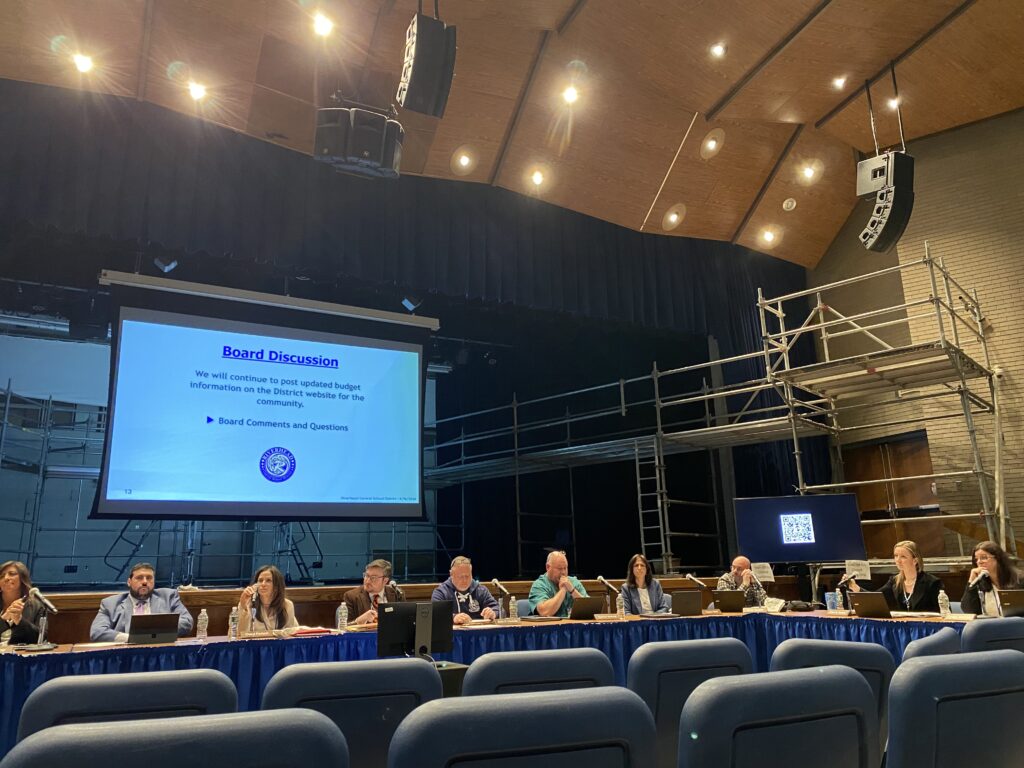Column: For Billy Joel, helping Ukraine is personal

Billy Joel grew up in a family that had known firsthand what it meant to be refugees in search of safety and freedom. His father, Helmut Joel, and Billy’s paternal grandparents, Karl and Meta Joel, escaped from Germany after Hitler came to power and began the persecution of Jews.
The couple and their son found safety in Switzerland. From there they went to Cuba and finally New York City. Billy’s maternal grandparents had left Ukraine earlier in the 20th century to escape antisemitism and moved to England and then the United States.
“I am an American,” Billy said in an interview. “Both of my families came from European catastrophes.”
He grew up in Hicksville in a home managed by his single mother. She worked multiple jobs to keep the family afloat. Oh, and to pay for the piano lessons her son was taking.
Billy had a strained relationship with his father and his German grandparents, who during Billy’s childhood lived in Upper Manhattan. To their grandson, they were distant and aloof people who lived in a world of their own, spoke German in his presence and left him feeling excluded and unwelcome.
“They were in many ways strangers to me,” he once said in an interview. “And then they were gone — they returned to Germany.”
For years he lost track of his father until, after Billy began the road to great success, he tracked him down in Europe when he was there to perform.
The Joel family story is deeply rooted in the 20th century’s horrors and the waves of refugees escaping hatred and conflicts. They knew the acute pain of loss and about the challenges of starting from scratch somewhere else and trying to make a go of it.
It is this family history, Billy said, that has motivated him to contribute financially to help Ukrainian refugees fleeing war in their country.
Karl Joel, Billy’s grandfather, owned a highly successful fabric and mail-order business in Germany. The family represented the pinnacle of success for German Jews in the years prior to Hitler coming to power in 1933. And then it was taken from them.
A young Nazi Party member named Josef Neckermann “bought” the fabric business — for a deep discount — as the persecution of Jews was increasing and as Karl and Meta Joel fled the country with their young son, Helmut, Neckermann stiffed them entirely.
Neckermann, who also had a wartime factory in a Jewish ghetto in Poland that employed slave labor, became one of the wealthiest men in West Germany after the war — a wealth built on the theft of another man’s hard work.
While Karl and Meta Joel lost their business and a grand home in Berlin, they got out alive. Like the waves of refugees today fleeing Russian barbarity in Ukraine, they fled with what they could carry. By leaving, by starting over in America, a boy grew up in suburban Long Island and became … Billy Joel.
Watching the horror underway in Ukraine, seeing the millions of refugees — mostly women and their children and grandchildren — has brought back to Billy a deeper understanding of his family’s refugee roots.
He sees his father and his paternal grandparents getting out of Nazi Germany by the skin of their teeth. He sees his grandfather’s desperate effort to be compensated for the business and homes he lost.
One of the many oddities of family history that Billy has struggled to get a grip on over the years is why his grandparents and his father returned to the very place that had kicked them out and would have killed them had they stayed.
Last week, the Joel Foundation donated $250,000 to “bstrong,” a disaster relief organization started in 2017 by television producer and philanthropist Bethenny Frankel. The group’s website — bethenny.com/bstrong — lists all the group is doing to help Ukrainian refugees. Prior to that donation, the Joel Foundation had funded music programs on Long Island and helped musicians stay afloat during the COVID-19 pandemic.
In an interview, Billy said it was both the right thing to do to offer help to Ukraine, but also that it came from someone whose family members had once been refugees themselves.
“I very much wanted to try and do something,” he said. “This is a catastrophic situation for the people of Ukraine. We researched a couple of different groups and decided on this one. They are directly involved with exiles and help with food, clothing and medical supplies for the people fleeing the war.”
“I am the child of refugees,” he added. “I grew up a baby boomer and I remember the air raid drills in school. I am hoping, with all that is going on, that what you see on the news will spark some empathy for immigrants who need help.”
Not everyone in the Joel family escaped the Nazis. After Karl, Meta and Helmut got to Cuba, Karl’s brother Leon, his wife and their son boarded the ill-fated MS St. Louis in Europe in 1939 for passage to Cuba. When the ship arrived in Havana, the authorities refused to allow the passengers to disembark.
At one point, Karl hired a boat to go out to the St. Louis in the harbor so he could talk to his brother. Unwelcome in Cuba, the ship plied the East Coast of America hoping to find a port that would take them.
None did. The ship, with its 937 passengers, had to return to Europe. Of that number, 255 were murdered in German death camps, including Leon and his wife, who were killed in Auschwitz. Their son survived.
It is 2022, and history, the wheel that never stops turning, is repeating itself.








